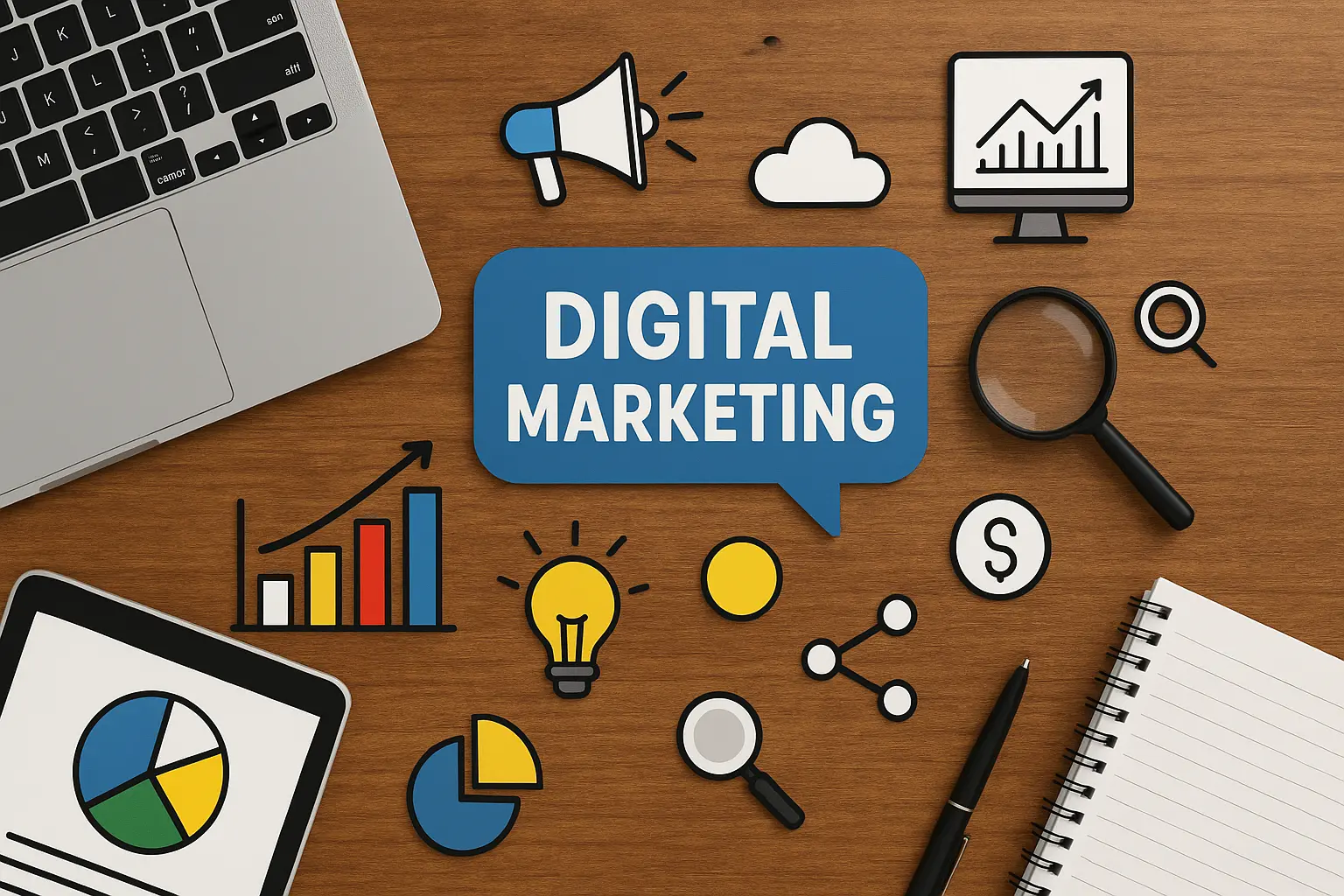
In today’s digital-first world, behavioral health centers and medical clinics can no longer rely on word-of-mouth and physician referrals alone. Whether you run an addiction treatment program, mental health practice, or primary care clinic, your potential patients are searching online, often in moments of urgency. That said, you must have the right digital marketing strategy that builds trust, increases qualified leads, and ensures that your services reach the people who need them most.
But marketing in healthcare isn’t like marketing a retail product or e-commerce brand. It requires sensitivity, compliance, and a deep understanding of the patient journey. That’s why this guide exists to help you navigate digital marketing with clarity, integrity, and confidence.
Why Healthcare Marketing Needs a Specialized Approach
Marketing for behavioral health and medical services isn’t just about traffic and clicks. You’re dealing with vulnerable populations, sensitive conditions, and strict compliance standards like HIPAA and Google Ads regulations. That’s why strategies that work for general B2C businesses don’t always apply here.
Patients (and their families) are looking for more than just convenience. They’re looking for providers they can trust, environments that feel safe, and content that feels human. This means your digital presence has to reflect both your clinical expertise and your empathy.
At RxMedia, we believe ethical marketing should be the norm in healthcare. That’s why we take a strategic yet compassionate approach - one that balances visibility with credibility, growth with compliance.
Key Pillars of Digital Marketing in Behavioral Health and Medical Settings
A strong digital marketing strategy for healthcare isn’t one-size-fits-all. It should be built around your clinic’s goals, target audience, and the unique challenges that come with promoting sensitive, regulated services. Below are the foundational pillars every behavioral health or medical clinic should prioritize.
1. Search Engine Optimization (SEO)
Most patients start their search for care on Google. That makes SEO one of the most critical long-term investments for your clinic. Effective healthcare SEO does more than improve rankings; it ensures your services show up for the right people at the right time.
What it includes:
- Keyword research focused on conditions, services, and local terms (e.g. “addiction treatment in Portland” or “primary care clinic near me”)
- On-page optimization of service pages and blog content
- Local SEO: Google Business Profile optimization, citations, and local landing pages
- Technical SEO to improve site speed, mobile usability, and crawlability
- Link-building from relevant, credible directories and partners
Why it matters:
When done well, SEO positions your clinic as a trustworthy solution in a crowded online space without relying on paid ads. It also builds authority over time and supports every other channel you use.
Not sure how to start leveraging your SEO? Check out: SEO Strategies That Actually Work For Addiction Treatment Centers

2. Paid Advertising (PPC)
While SEO is a long game, Google Ads and social ads can deliver immediate visibility for your services. However, advertising in healthcare comes with serious limitations, especially in behavioral health where terms like “rehab” and “treatment” are often restricted.
What works:
- Branded search campaigns for name recognition
- Local service ads and geo-targeting to reach nearby patients
- Facebook and Instagram ads with awareness-focused messaging
- Retargeting ads to re-engage website visitors
What to avoid:
Generic campaigns that don’t account for Google’s healthcare ad policies. Violating these can result in account suspension or wasted spend.
RxMedia’s edge:
We understand how to run compliant campaigns while still generating leads, using carefully crafted copy and ad structures that align with platform rules.
3. Website Design & User Experience
Your website is often the first impression someone has of your practice. In the healthcare space, that first impression needs to communicate trust, clarity, and accessibility.
What matters:
- Clean navigation, fast load times, and mobile responsiveness
- Service pages that explain offerings in plain, empathetic language
- Clear call-to-actions (CTAs): “Call now,” “Verify insurance,” “Schedule a consultation”
- HIPAA-compliant forms and live chat
Why it’s critical:
If your site feels confusing, outdated, or unsafe, visitors won’t reach out no matter how great your services are.
4. Social Media Marketing
Social media may not drive the most direct conversions, but it builds community, credibility, and visibility, especially for mental health or recovery programs.
Best practices for clinics:
- Use video to introduce staff, explain services, or share behind-the-scenes views
- Highlight success stories or testimonials (with client permission)
- Educate your audience with quick mental health or medical tips
- Avoid overt sales pitches; focus on being helpful and human
Bonus:
Clinics with active, thoughtful social media pages often see better engagement on their Google Business Profile and website.
5. Content Marketing
Whether it’s blog posts, downloadable guides, or email newsletters, content marketing plays a key role in building trust and educating your audience.
Examples of high-performing content:
- “What to Expect in a 30-Day Rehab Program”
- “Signs It’s Time to See a Mental Health Professional”
- “How Our Primary Care Clinic Supports Chronic Illness Management”
Why it works:
Content builds authority with search engines and creates a bridge between discovery and action. It’s where people go to confirm: “Yes, this clinic understands what I’m going through.”
6. CRM & Automation
Following up with leads quickly and consistently is often where clinics drop the ball. That’s where a healthcare CRM like GoHighLevel comes in.
How we use it:
- Automate appointment reminders, check-ins, and follow-ups
- Nurture cold leads with drip email campaigns
- Track where referrals and inquiries are coming from
7. AI and Advanced Technical SEO
As search continues to shift toward AI-powered results, the way people find healthcare providers is changing fast. At RxMedia, we use artificial intelligence and Generative Engine Optimization (GEO) to make sure your clinic shows up in the types of search results that matter today, like chat-based tools, voice assistants, and AI summaries.
How we use AI in healthcare marketing:
- Support content planning with AI-powered keyword and topic research
- Analyze trends and search behavior to uncover new opportunities
- Accelerate campaign testing and ad copy creation
- Use AI chat tools to assist with lead capture and secure communication

Compliance Considerations in Healthcare Marketing
Marketing for behavioral health and medical clinics requires strict attention to legal and ethical standards. Compliance is essential to protect patient privacy, maintain trust, and avoid violations that can result in serious consequences.
HIPAA Compliance
Any marketing strategy must account for HIPAA regulations. This includes how websites, forms, tracking tools, and communication systems handle data.
- Do not collect protected health information (PHI) unless using secure, HIPAA-compliant tools
- Ensure contact forms, live chat features, and CRMs are properly encrypted and configured
- Never share patient stories, testimonials, or identifiable data without written consent
Advertising Platform Policies
Digital platforms like Google and Meta have strict rules for healthcare advertising. Behavioral health services are especially sensitive and require careful review before launching campaigns.
- Avoid language that refers to personal health conditions or makes guarantees of results
- Use general, informative messaging and comply with platform-specific healthcare ad policies
- Monitor ad accounts closely to prevent disapprovals or suspensions
Website Privacy Standards
A clinic’s website must follow industry standards for security and transparency.
- Use SSL certificates to protect visitor data
- Include up-to-date privacy policies and disclaimers
- Avoid collecting unnecessary user data
- Ensure all third-party tools (e.g., analytics, forms, scheduling widgets) meet compliance requirements
Tracking Success: KPIs That Matter in Healthcare Marketing
Once your marketing strategy is in place, the next step is measuring whether it’s working. In the healthcare space, tracking performance requires a balance between standard digital metrics and patient-centered outcomes. Knowing which key performance indicators (KPIs) to monitor helps you make informed decisions, improve efficiency, and focus on strategies that deliver real results.

Website Performance
- Website traffic: Track how many people visit your site and which pages they’re engaging with
- Bounce rate and time on page: Identify whether visitors are finding relevant information or leaving too soon
- Form submissions and click-to-call actions: Measure how often visitors take steps toward contacting your clinic
Lead Generation
- Cost per lead (CPL): Calculate how much it costs to generate a qualified inquiry through ads or SEO
- Lead source breakdown: Know where your leads are coming from (organic search, paid ads, social media, referrals)
- Lead-to-admission conversion rate: Track how many inquiries result in scheduled appointments or admissions
Advertising Metrics
- Click-through rate (CTR): Understand how well your ads are grabbing attention
- Impression share: See how often your ads are showing up compared to competitors
- Conversion rate: Measure how many ad clicks turn into real inquiries or bookings
Local and Reputation Metrics
- Google Business Profile views and actions: Track calls, website clicks, and direction requests
- Online reviews and star ratings: Monitor how your clinic is perceived across platforms
- Local keyword rankings: See how well your site ranks for key services in your region
Follow-up and Retention
- No-show rate: Evaluate how well your scheduling and reminder systems are working
- Response time: Measure how quickly your team follows up on inquiries
- Re-engagement rates: Track how many former clients or lost leads return
Reviewing these KPIs regularly allows you to adjust your strategy based on performance. Instead of guessing what works, you’ll have clear data to guide your decisions and maximize your clinic’s growth.

Choosing the Right Marketing Partner
The success of your digital marketing strategy depends not just on the tools and tactics you use, but on who’s behind them. Behavioral health and medical marketing come with unique challenges that require more than general marketing knowledge. They demand a deep understanding of compliance, patient behavior, industry regulations, and ethical communication.
When selecting a marketing partner, look for an agency or team that:
- Specializes in healthcare and understands HIPAA compliance
- Has experience working with behavioral health, addiction treatment, or clinical practices
- Offers full-service strategy, including SEO, paid media, content, and website development
- Uses transparent reporting and tracks meaningful KPIs
- Can scale and adapt with your organization’s growth
- Prioritizes long-term trust
Final Thoughts
Marketing in healthcare plays a vital role in connecting people to the care they’re searching for. Whether someone is looking for mental health support, addiction treatment, or medical services, their first step often begins online. A strong, trustworthy digital presence helps guide them toward the right resources at the right time.
Every element of your strategy—from the structure of your website to the clarity of your messaging—can either build confidence or create confusion. When your clinic communicates clearly, ethically, and compassionately, people are more likely to take the next step toward care.


.jpg)
.png)